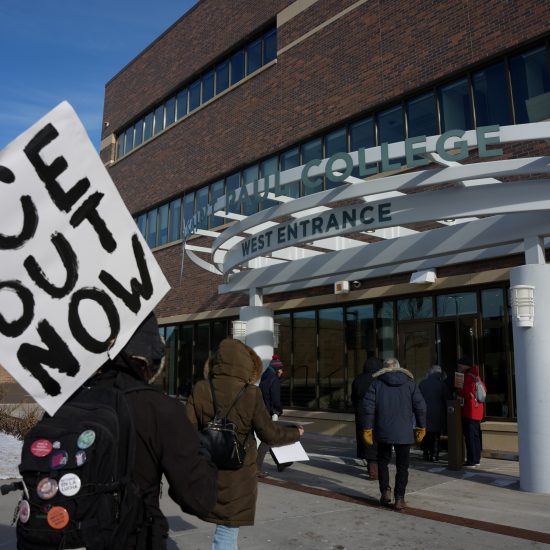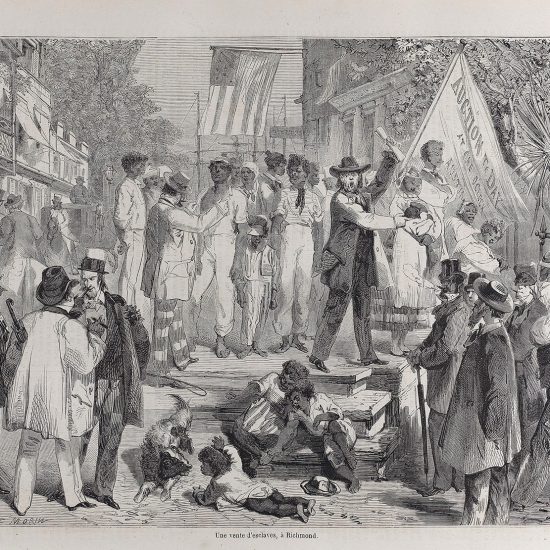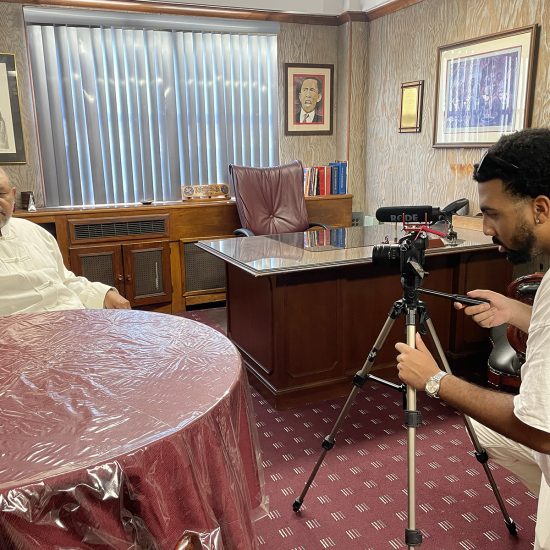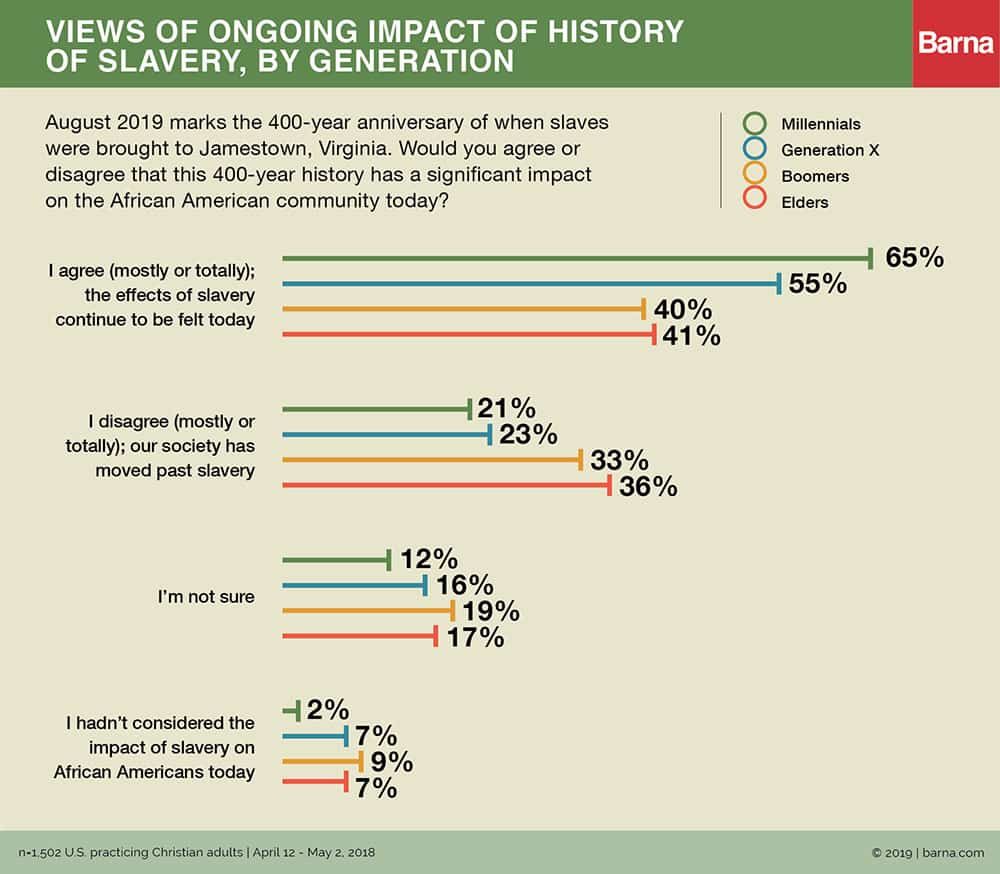
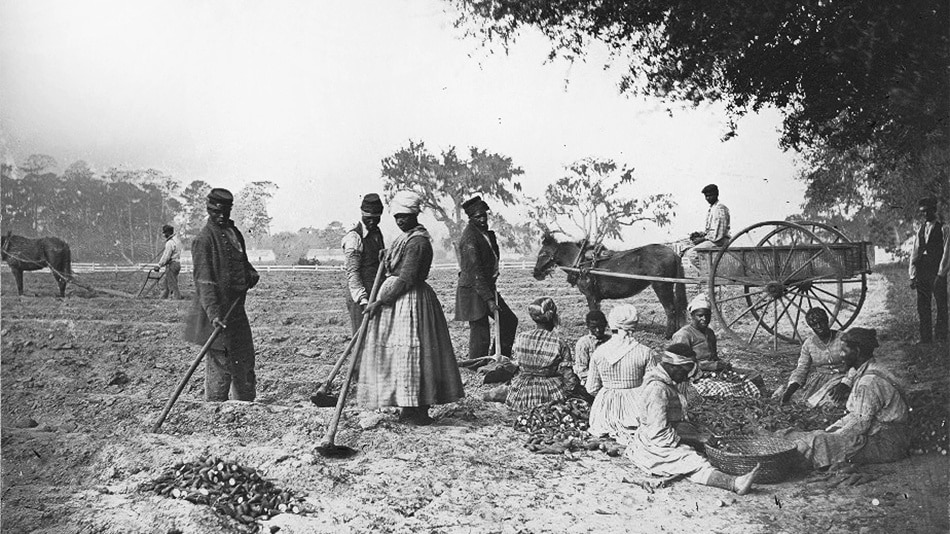
Slaves plant sweet potatoes on the James Hopkinson plantation in South Carolina circa 1862. Photo courtesy of LOC/Creative Commons
(RNS) — Fifty percent of practicing Christians say the history of American slavery continues to significantly affect the African-American community today, a Barna study shows.
A slightly smaller percentage of the general population of U.S. adults surveyed (46%) agrees that, almost 400 years after slaves were brought to Jamestown, Va., there remains a “significant impact on the African American community.”
A bit more than a quarter of both practicing Christians and the general population (28%) say our society has moved past the history of slavery.
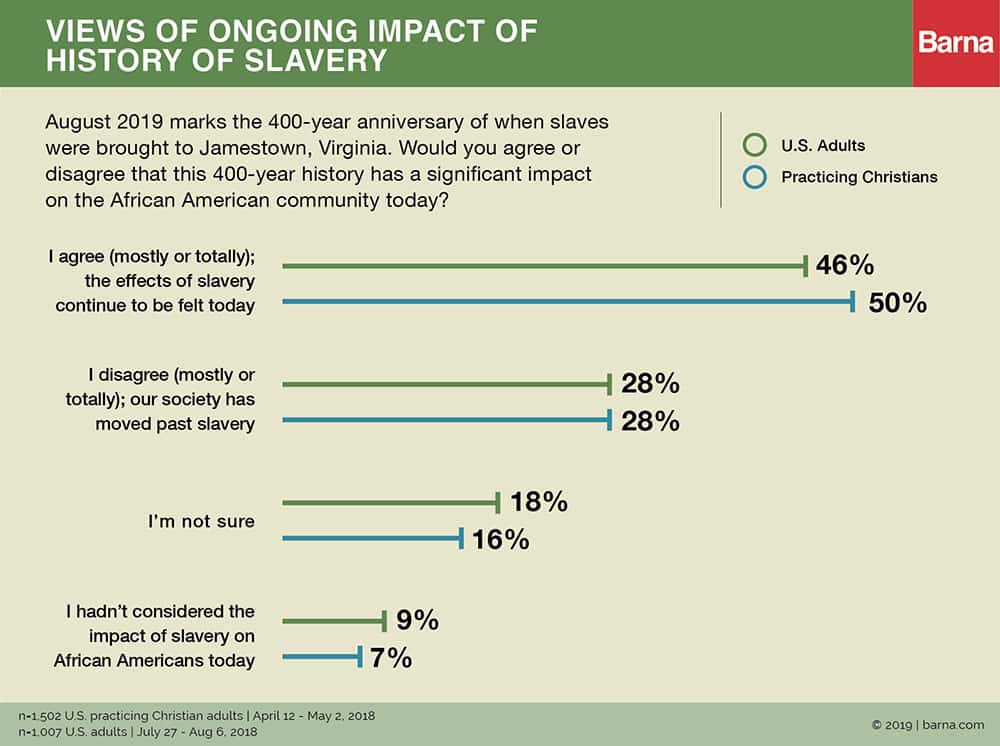
“Views of Ongoing Impact of History of Slavery.” Graphic courtesy of Barna
Barna, a nonpartisan for-profit research firm, defined practicing Christians as people who identified themselves as Christians who said they attended a worship service in the past month and said their faith is very important in their lives. The findings are included in a new report, “Where Do We Go from Here?”
Sixteen percent of practicing Christians responded to the question about slavery by saying they were unsure, compared to 18% of Americans overall. Seven percent of practicing Christians said they had not considered the issue, compared to 9% of the general population.
The study also showed sharp differences in views across racial and generational lines. While 79% of black practicing Christians agree that slavery’s effects continue today, 42% of white practicing Christians share that view. Conversely, 34% of white practicing Christian say society has moved beyond the history of slavery, while 9% of black practicing Christians say they hold that view.
Millennials, defined in the survey as those born from 1984 to 1998, were the group most likely to agree there are continuing effects of slavery, with 65% saying so. The findings for older groups with similar views were as follows: Generation X (born 1965 to 1983) — 55%; boomers (born 1946-1964) — 40%; Elders (born before 1946) — 41%.

“Views of Ongoing Impact of History of Slavery, By Generation.” Graphic courtesy of Barna
Barna’s report included reflections from scholars and faith leaders about how Christians can move ahead in addressing racism.
“Churches need to preach on racial issues and return to preach on them again and again,” said Mark E. Strong, a lead pastor of Life Change Church in Portland, Ore., in a statement in a summary of the report.
“This is part of spiritual formation, and like other formation issues — prayer, discipleship, generosity — it demands emphasis and regular, strong teaching.”
The study, conducted with The Reimagine Group, which produces resources aimed at improving churches, is based on online surveys of 1,007 U.S. adults and 1,502 practicing adult Christians. The surveys, conducted between April and August 2018, have a margin of error of plus or minus 2.9 percentage points for the general population and plus or minus 2.3 percentage points for practicing Christians.


